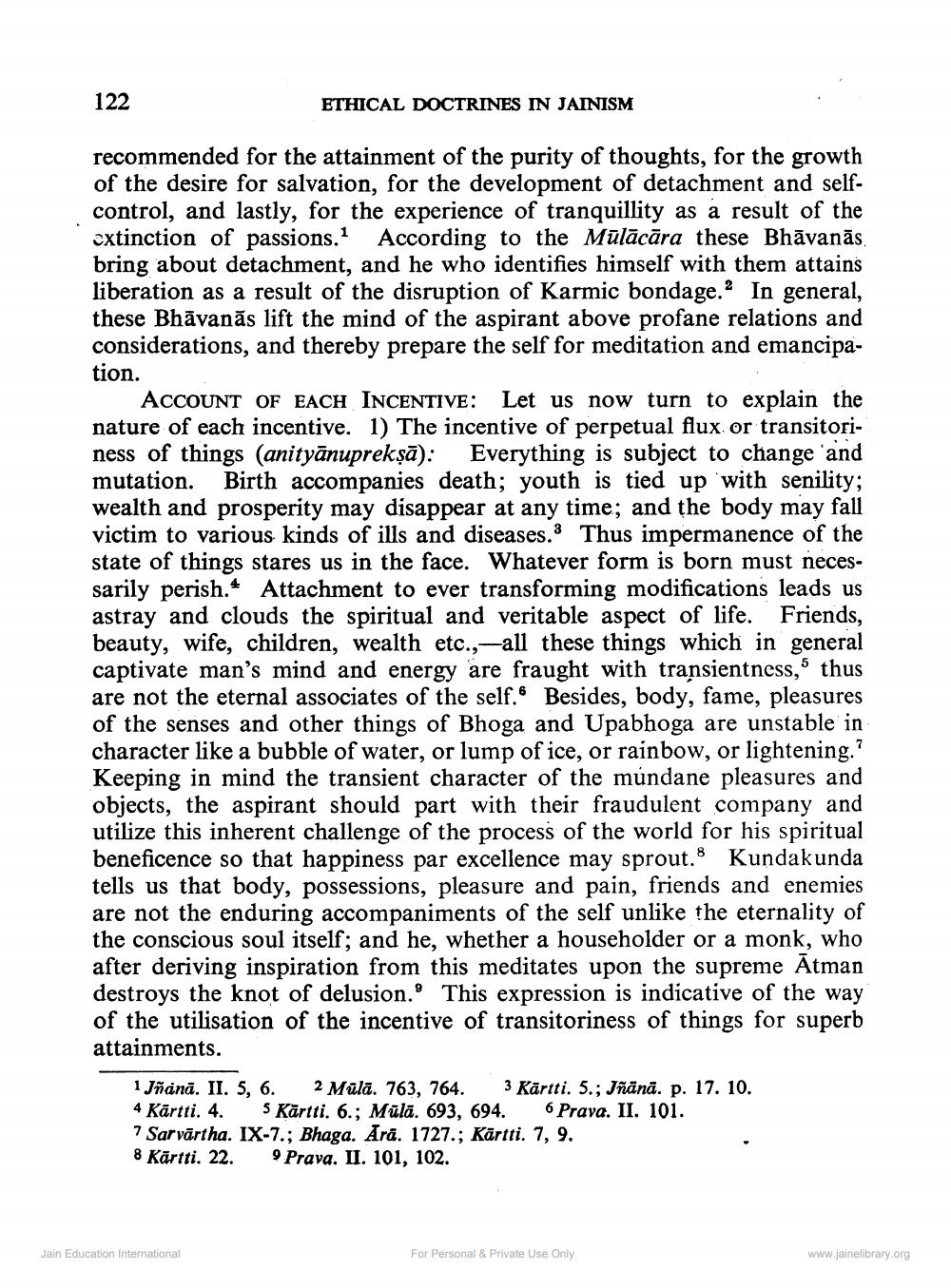________________
122
ETHICAL DOCTRINES IN JAINISM
recommended for the attainment of the purity of thoughts, for the growth of the desire for salvation, for the development of detachment and selfcontrol, and lastly, for the experience of tranquillity as a result of the extinction of passions.1 According to the Mūlācāra these Bhāvanās bring about detachment, and he who identifies himself with them attains liberation as a result of the disruption of Karmic bondage.2 In general, these Bhāvanās lift the mind of the aspirant above profane relations and considerations, and thereby prepare the self for meditation and emancipa
tion.
ACCOUNT OF EACH INCENTIVE: Let us now turn to explain the nature of each incentive. 1) The incentive of perpetual flux or transitoriness of things (anityānuprekṣā): Everything is subject to change and mutation. Birth accompanies death; youth is tied up with senility; wealth and prosperity may disappear at any time; and the body may fall victim to various kinds of ills and diseases. Thus impermanence of the state of things stares us in the face. Whatever form is born must necessarily perish. Attachment to ever transforming modifications leads us astray and clouds the spiritual and veritable aspect of life. Friends, beauty, wife, children, wealth etc.,-all these things which in general captivate man's mind and energy are fraught with transientness, thus are not the eternal associates of the self. Besides, body, fame, pleasures of the senses and other things of Bhoga and Upabhoga are unstable in character like a bubble of water, or lump of ice, or rainbow, or lightening.' Keeping in mind the transient character of the mundane pleasures and objects, the aspirant should part with their fraudulent company and utilize this inherent challenge of the process of the world for his spiritual beneficence so that happiness par excellence may sprout. Kundakunda tells us that body, possessions, pleasure and pain, friends and enemies are not the enduring accompaniments of the self unlike the eternality of the conscious soul itself; and he, whether a householder or a monk, who after deriving inspiration from this meditates upon the supreme Atman destroys the knot of delusion. This expression is indicative of the way of the utilisation of the incentive of transitoriness of things for superb attainments.
1 Jñana. II. 5, 6. 2 Mūlā. 763, 764. 3 Kārtti. 5.; Jñānā. p. 17. 10. 4 Kärtti. 4. 5 Kärtti. 6.; Mūlā. 693, 694. 6 Prava. II. 101.
7 Sarvārtha. IX-7.; Bhaga. Ara. 1727.; Kärtti. 7, 9.
8 Kārtti. 22.
9 Prava. II. 101, 102.
Jain Education International
For Personal & Private Use Only
www.jainelibrary.org




